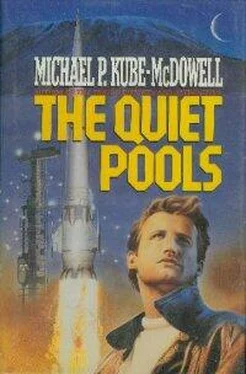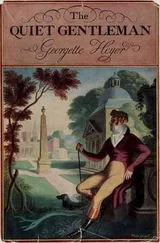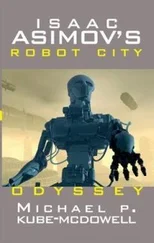That calmed him somewhat. “We’re going to do something about this, Lila,” he said. “I won’t let what he said stand unchallenged. I won’t let them think I wanted this.”
“Yes, sir.”
“I’m going to go real-time. I’ll need you to map out an interrupt. Pick a local station—everyone else can get it from them. I’ll need at least three minutes.”
“Yes, sir. I’ll let you know when it’s ready.”
While he waited, there were more stories. The State Police had the only crime-scene documentaries, but were refusing to release them—a station in Dallas was suing. (“That one,” he told Lila. “They’ll hear me out. Put it through them.”) The Allied Transcon complex was locked down and in mourning, and Hiroko Sasaki was rumored to be there. (He checked other sources: She was still in Prainha.)
But the stunner was one of the late arrivals: a synth-image recreation of the girl’s last hours by the current affairs show Headliner . Somehow they had obtained a recording of the concert which had drawn Malena out into the city, and found her in an audience shot.
With that and Silverman’s interviews as templates, they were able to animate a mockumentary, showing “Malena” walking with her friends from the tram station to the club, leaving the bar with “Silverman,” sitting in his flyer, and, ultimately, lying dead on the ground.
In keeping with Headliner reputation for heavy-handed journalism, the commentary was moralistic and overblown (“But Malena Graham could not resist the temptations of her youthful freedom…”). The ham-fisted essayism extended to using a song from the concert as ironic counterpoint to the images: “Look at me, I’m flying free—”
“Good God,” said Jeremiah. “Lila—who is that?”
“The performer is Christopher McCutcheon, an archaeolibrarian with the Memphis hyper project in Houston.”
“I want to hear the whole song.”
There was a pause. “I’m sorry, it doesn’t appear to be available.”
“Someone has it. Call Headliner .”
“I could contact Christopher directly.”
“No,” said Jeremiah. “Call Headliner . Buy it if you have to.”
“Yes, sir,” said Lila. “By the way, the interrupt you requested is ready now.”
“Keep it current,” said Jeremiah. “I’m not.”
Jeremiah sat back in his chair, hands folded in his lap, eyes unblinking, and watched the recording through to the end. When it was over, he watched it a second time.
“Kill it, Lila,” he said. “No archive.”
Then he rose and left the warren and its screens and queues, left the house, his heart full of pain. His triumph had been stolen from him, trumped by the mocking images which had flickered across the displays. It did not matter if the damage in Munich would delay Memphis ten days or ten months. No amount of time would be enough to dissuade them. They would never turn from their course.
All the proof he needed was contained in the final four minutes of the concert. The last song Christopher sang was the embodiment of unreason, a précis of cultural insanity. Its words revealed every folly of the Diaspora, every bitter truth that poisoned the sweet romance of adventure.
There were no other Edens, no golden paths. There was no glory in a shabby death a long way from home. The final, brutal indictment was the son’s tragically misguided choice—no, not a choice, a received obligation—to carry on his father’s quest. Delicta maiorum immeritus lues .
Yet the audience applauded the waste of lives, acclaimed the embrace of pointless suffering, absolved the father through his son’s blind emulation of a suicidal self-sacrifice.
And the singer accepted the accolades as though that were what he had meant all along.
The agony of Malena’s parents came through to him with new force. “We tried to talk her out of it,” Mother Caroline had said to the reporters. “We pleaded with her to stay. But she wouldn’t listen. What can you do? What can you do when they’ve made up their mind?”
Her helpless feeling echoed his own. He could not touch them. He could not reach their minds or turn their hearts. You will leave me, and I will lose you. That was what Mother Caroline faced, what every family faced. That was the fear which had eaten away at the dreamy idealism of the Diaspora in the years since Ur .
“As far as I’m concerned, she was a runaway, as much as if she’d gone to the streets,” Father Jack had said. “Someone caught her eye with a shiny trinket and a bit of candy and she was gone. She took everything that we’d given her and threw it away. I’m sorry if it sounds hard, but she was dead to me from that day on.”
How many wounds had been left by eight thousand final partings, how many families shattered? How many mates and lovers and children and parents still nursed anger and hurt that they were abandoned? How many that they touched had learned to view the new ship taking shape in orbit as a threat?
“She was a terrific girl,” Father Brett had said. “She brought so much brightness to my life, and now she’s gone. I know we were going to have to say good-bye soon, but I feel cheated. We were expecting her home for Yule, did I say that? And I still half expect to hear her at the door. I loved her and she’s gone. I really haven’t been able to think about anything but that.”
Malena was gone. But the rest of the ten thousand were still here, could still be saved, their families and friends and lovers still spared. Mother Caroline and Father Jack had surrendered, accepted a reality they hated, and their daughter had paid the price. If he, Jeremiah, surrendered as they had, the price paid would be far greater.
When he returned to the house after an hour’s walk, he stopped to watch the hummingbirds darting through the air around the bright red feeder. There were three nesting pairs this season, the most in several years. The frantic energy in their tiny bodies was a marvel, their speed on the wing a delight.
But this morning, he could not feel delight. He descended into the warren, still grasping for an answer. The queues had ballooned again. The new additions included the Houston site director’s first statement, still under way, on the murder. As Jeremiah joined the cast, the director was condemning Silverman and “all those who share his curse of hate and arrogance of virtue.”
“We know his kind,” said Carlos Vincenza. “We’ve seen them outside our gates, waving fists and hurling rocks. We’ve heard their voices, bleating about Mother Gaea and the selfishness of the pioneers. But is there any act more selfish than the one Evan Silverman committed in that field? Is there any explanation besides jealousy for denying someone else a gift you could never appreciate, or stealing a reward that you could never earn?
“They call themselves Homeworlders. Better we should call them homebodies. They protest their own history. They stand against the future. Their life strategy consists of pulling back to the smallest defensible locus. They want to give up nothing, risk nothing, and preserve everything. They’ve made their lives petty and meaningless, and they want ours to be as empty.
“But we have goals and dreams, and we have the right to pursue them. The cost is being borne by those who choose to bear it. The sacrifices will be made by those who choose to make them. We ask only one thing from you: Let us be . Turn your back if you must, but let us go. It means nothing to you, but everything to us—as it did to Malena Graham.”
As Jeremiah watched Vincenza, his expression turned harder and grimmer. “Lila,” he said when it was over, “what has Allied said about Munich?”
Читать дальше

![Nick Cracknell - The Quiet Apocalypse [= Island Zero]](/books/28041/nick-cracknell-the-quiet-apocalypse-island-zero-thumb.webp)










